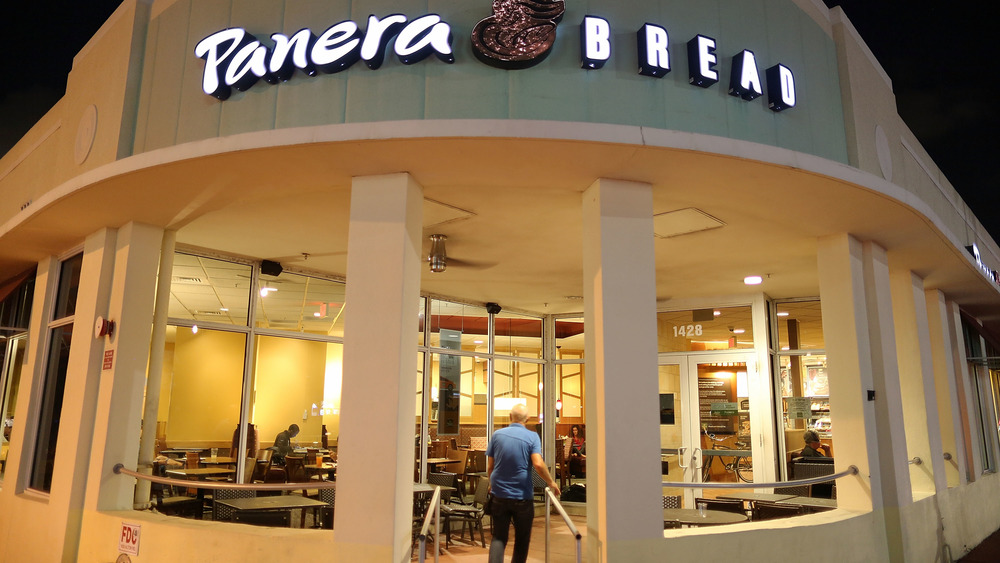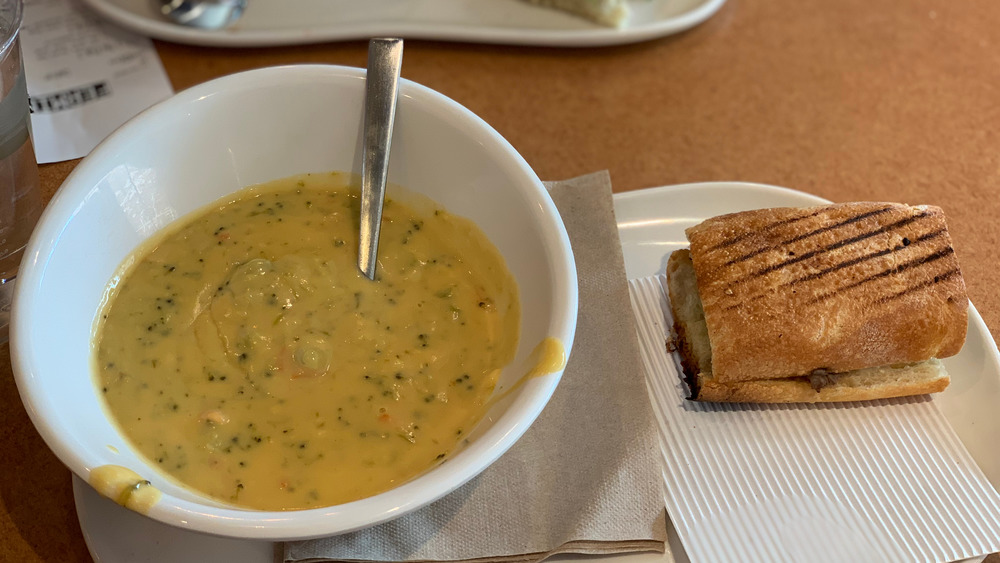Why Some People Are Skeptical About Panera's 'Clean' Food
Promoting "clean" food has gotten messy for Panera Bread. A Panera customer recently filed a class-action lawsuit against the fast-casual chain (via Top Class Actions). He accuses Panera of falsely promoting its menu options as clean, arguing that Panera uses certain chemical preservatives that go against its own definition of "clean."
Scientists at the Food and Drug Administration don't have an official definition for "clean," so food producers and restaurants are left to define for themselves what the word means (via C+R Research). At Panera, "clean" is defined as not containing any artificial preservatives, sweeteners, flavors, or colors. The list of ingredients banned from Panera's pantry includes trans fats, aspartame and saccharin, high fructose corn syrup, and lard (which doesn't seem to belong on the list because it's natural).
The plaintiff in the class-action lawsuit, Randall Sally, claims that four chemical preservatives not mentioned on Panera's "no-no list" are in the chain's food: ascorbic acid, citric acid, potassium sorbate, and tocopherols. Sally is asking that Panera refund him and anybody else who ate at the company's restaurants in Missouri over the past five years. He also wants the court to order Panera to stop advertising its food as clean.
Just because food is "clean" doesn't mean it's healthy
In a legal response Panera filed in federal court, the chain doesn't deny using ascorbic acid, citric acid, potassium sorbate, and tocopherols, all of which are defined as "chemical preservatives" by the FDA. Instead, Panera argues a technical point. It says it uses those ingredients for some purpose other than as a preservative, so it isn't contradicting its own definition of "clean." With no official, accepted definition of "clean," it's hard to predict how this case will end.
Food experts, such as those at C+R Research, warn brands and consumers not to confuse "clean" with "healthy." Ice cream has a lot of sugar and certain soups or sandwiches might have a lot of sodium and still meet someone's definition of "clean."
Food scientists also pointed out that some of Panera's banned ingredients are, in fact, healthy (via Forbes). The preservative potassium sorbate, for example, might be produced in labs but is beneficial because it prevents the growth of microorganisms that make food go bad. John Frelka, a PhD candidate in food science at OSU, told Forbes there's not much difference between ingredients on Panera's no-no list and the more natural alternatives it uses. They "might have a more appealing common name, but in the end, they are still chemicals," he explained. A Graduate Fellow in food science, Matt Teegarden, added, "Even additives from natural sources can be unsafe in high enough amounts."

